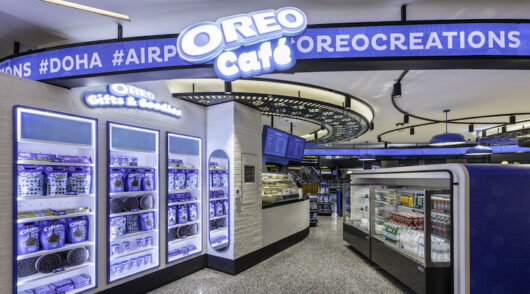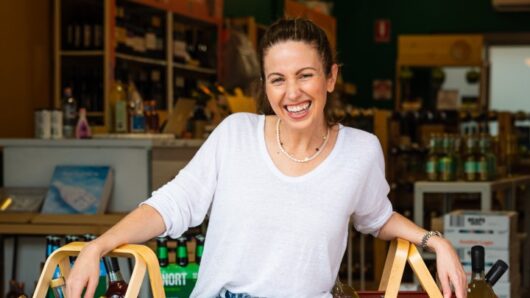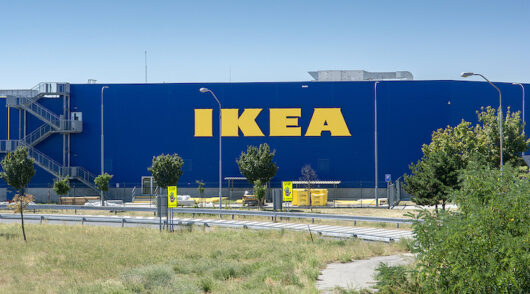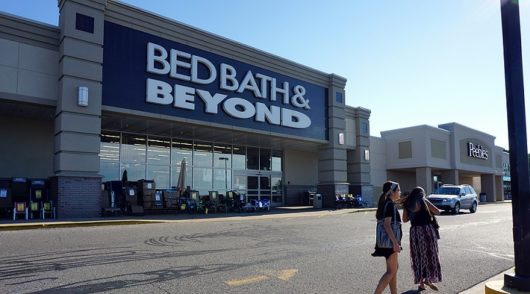Super Retail Group has seen its full-year net profit soar 62.1 per cent to $101.8 million, helped by expanding margins in all its three major divisions.
The owner of Rebel Sports, Rays and Supercheap Auto has exceeded its earnings guidance, taking double-digit profit growth to the market and also said it intends to spend circa $120 million on in FY18 to bolster its competitive position after spending upwards of $100 million last year.
Net-profit-after-tax (NPAT) increased by 25 per cent to $135.8 million, excluding $34 million in costs brand impairments related to the Amart Sports merger, while earnings before interest and tax (EBIT) increased 18.3 per cent to $207.3 million.
Auto retailing (Supercheap Auto) EBIT rose 16.1 per cent, with sales increasing to $955 million on 4.8 per cent growth in like-for-like sales, as transaction numbers and average value went up.
Sporting division (Amart Sports and Rebel) EBIT rose 17.4 per cent, with sales increasing to $949 million on 4.4 per cent growth in LFL sales, with strength in men’s and kids apparel and equipment offsetting weakness in footwear.
Leisure, the historically troubled division encompassing Rays and BCF, booked a 36.6 per cent increase in EBIT on the closure of Ray’s Outdoor stores, which saw sales decrease by 4.9 per cent to $553 million. LFL sales grew 4.8 per cent though, as the leaner operation began to drive growth in transaction numbers and average value.
Sales momentum continued in the first seven weeks of FY18, with the company reporting approximate LFL sales growth of 4 per cent in auto, 7 per cent in leisure and 2 per cent in sports so far.
Expenditure for the year ahead is forecasted to be around $120 million, as Group CEO Peter Birtles moves to continue implementing digital, IT, supply chain and analytics capabilities to bolster defences against international competitors such as Amazon.
SRG spent $64.7 million on refurbished stores during the year, including a new Penrith flagship for Supercheap Auto, with a further 36.5 million spent on “general projects” that encompass IT and “technology infrastructure” improvements.
Birtles growth in all three divisions was particularly pleasing, reiterating his belief that the company is positioning itself well with significant investment in omni-channel initiatives.
“I am pleased to report a quality result for the 2017 financial year that reflects strong underlying performance across all three of the group’s divisions, the benefits of transformation initiatives in the Leisure and Sports Divisions and the investment in the group’s omni-retail capabilities,” he told the market.
“It is particularly pleasing that we were able to maintain the positive momentum of the group through the second half of the year despite the softer consumer environment and the cycling of stronger results in the second half of the prior year.
“The successful execution of our strategy has positioned the Group well to capitalise on the competitive advantages offered by our portfolio of market-leading brands, strong connection with communities of passionate customers, efficient international supply chain and comprehensive omni-retail network that is supported by our national store footprint,” he continued.
BCF drives leisure result
The turnaround in performance in the leisure division was driven by portfolio changes and a “reassertion” of BCF in the market, with a new brand campaign and revised pricing driving 5.1 per cent LFL sales growth.
12 Ray’s Outdoors stores converted to BCF through the year, with an additional four new locations opened, bringing the total BCF portfolio to 135.
Rays was weaker, with an EBIT loss of 6 million underpinned by LFL sales increasing 1.4 per cent as in-store traffic failed to meet management’s targets.
The company has signalled it will continue to focus on re-positioning Rays through FY18.
Digital drives Supercheap Auto strength
Strength in auto retailing was driven by a 75 per cent increase in digital sales over the prior corresponding period, as click-and-collect continued to prove popular with customers.
Gross margins improved, underpinned by promotional and ranging initiatives as well as sourcing process changes designed to offset the impact of a weaker Australian dollar.
Services, part of SCA’s ‘do-it-for-me’ customer strategy that’s recently seen it partner with Bosche on fitments, is growing quickly, with SRG indicating it will continue to explore opportunities to expand its range of fitment and maintenance services.
During the period twelve new SCA stores opened, three closed and 28 others were refurbished, resulting in 316 stores opened at the end of FY17.
Access exclusive analysis, locked news and reports with Inside Retail Weekly. Subscribe today and get our premium print publication delivered to your door every week.






